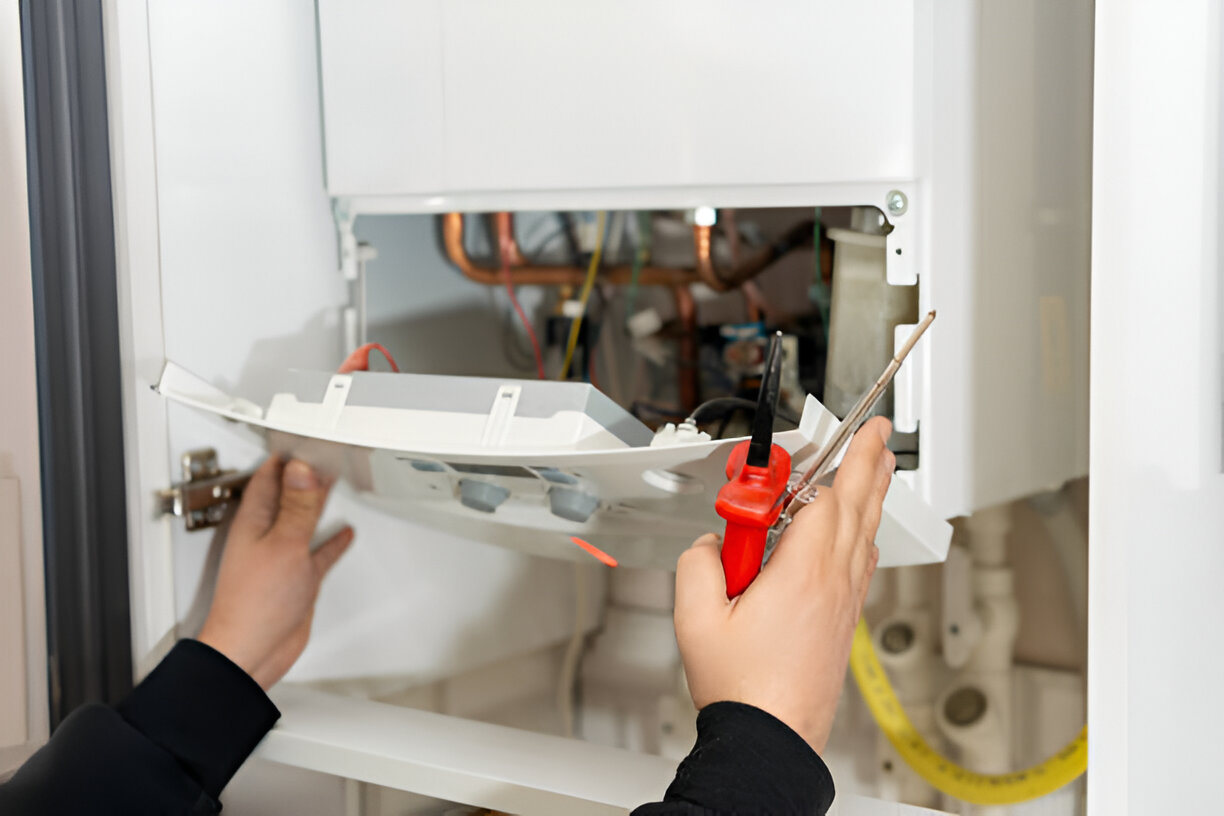Heating Installation in Pinery, CO
A correctly designed and installed heating system keeps your Pinery, CO home comfortable, safe, and energy-efficient through long, cold winters and wide daily temperature swings.

Why proper heating installation matters in Pinery, CO
Pinery homes face specific challenges: higher elevation, cold dry winters, and large daytime/nighttime temperature changes. Those factors affect system sizing, combustion performance, and heat pump efficiency. A poorly sized or incorrectly installed system will cycle excessively, cost more to operate, and deliver uneven comfort across rooms. Proper installation reduces breakdown risk, improves indoor air quality, and protects against safety hazards like carbon monoxide from gas appliances.
Common heating systems for Pinery homes
Understanding your options makes selection easier. Each system type has tradeoffs that matter in Pinery’s climate.
- Gas Furnaces
- Best for fast, high-output heating on very cold days.
- Requires safe venting, combustion air, and carbon monoxide checks.
- High-efficiency models reduce fuel use in long winters.
- Boilers
- Provide steady radiant heat through baseboards or radiant floors.
- Ideal where ductwork is limited or homeowners prefer hydronic heating comfort.
- Requires piping layout and pressure testing.
- Heat Pumps (Air-source and Cold-Climate Models)
- Highly efficient when temperatures are moderate; modern cold-climate heat pumps perform well at lower temps.
- Offer both heating and cooling in one system—beneficial for seasonal Colorado swings.
- Proper refrigerant charge and defrost controls are critical for performance.
Typical issues we resolve during installation
- Undersized equipment leading to long run cycles and poor comfort
- Oversized equipment causing short-cycling and premature wear
- Leaky or poorly designed ductwork reducing efficiency
- Incorrect venting or combustion configuration for gas appliances
- Inadequate piping or insufficient boiler flow for hydronic systems
- Improper thermostat placement or control wiring errors
Ductwork, piping, and structural integration
Installation often requires modification to existing building systems:
- Duct work
- Design and install properly sized supply and return runs, seal and insulate ducts to minimize losses, add zoning dampers when needed, and ensure returns avoid negative pressure problems.
- Piping and hydronics
- Install or retrofit piping for boilers, including properly sized pumps, expansion tanks, and balancing valves. Pressure-test systems and inspect for thermal expansion issues.
- Venting, combustion air, and clearances
- Install venting that meets manufacturer requirements and local code, size combustion air openings correctly, and maintain safe clearances around appliances.
- Electrical and controls
- Provide dedicated circuits, safe wiring for controls, and thermostat installation or zoning controls for optimal comfort and efficiency.
Compliance with local codes and permitting
Heating installations in Pinery must meet Douglas County and Colorado building and safety codes. Key compliance items include:
- Proper permits and inspections for gas, mechanical, and electrical work
- Approved venting and combustion configurations
- Carbon monoxide alarms and safe appliance clearances
- Adherence to appliance manufacturer installation requirements
We coordinate required inspections and ensure the installation documentation meets local authority expectations so your system is compliant and insurable.
Testing, balancing, and commissioning
Once equipment is installed we systematically verify system performance:
- Combustion and safety testing
- For gas appliances we test flame quality, combustion efficiency, CO levels, and vent draft to ensure safe operation.
- Airflow testing and balancing
- Measure supply and return airflow, adjust dampers and registers, and balance zones so each room receives designed heat.
- Refrigerant charge and controls
- For heat pumps check refrigerant charge, defrost cycles, and electrical protection; calibrate controls and thermostats.
- Start-up documentation
- Provide a start-up report showing measured performance, setpoints, and recommended adjustments.
Proper commissioning maximizes efficiency, extends equipment life, and prevents early failures.
Post-installation support and warranties
Quality installations are backed by ongoing support:
- Manufacturer and labor warranties
- New equipment includes manufacturer warranties; installation labor coverage protects against workmanship defects. Understand both timelines and coverage boundaries.
- System registration and maintenance plans
- Register equipment with manufacturers to preserve warranties and consider routine maintenance plans for seasonal tune-ups, filter changes, and priority service.
- Performance follow-up
- A follow-up visit or remote check ensures the system is meeting expectations and allows minor adjustments after the first weeks of operation.
Long-term benefits and maintenance tips
A properly installed heating system delivers predictable comfort, lower operating costs, and fewer emergency repairs. To protect that investment:
- Replace filters regularly and follow the manufacturer’s maintenance schedule.
- Keep vents and returns clear; inspect duct sealing periodically.
- Upgrade insulation and seal drafts to reduce load and runtime.
- Have combustion appliances inspected annually for safety and efficiency.
- Consider programmable thermostats or zoning to reduce energy use while maintaining comfort.
A careful assessment, the right equipment choice for Pinery’s climate, accurate duct or piping work, strict code compliance, and thorough testing give you a heating system that performs reliably for years. Proper maintenance and understanding warranty coverage preserve that performance and protect your investment in home comfort.
Customer Testimonials
.webp)
Buy Today, Pay Over Time
Wisetack - 0% APR up to 24 months (on approved credit)







